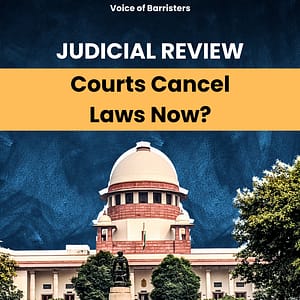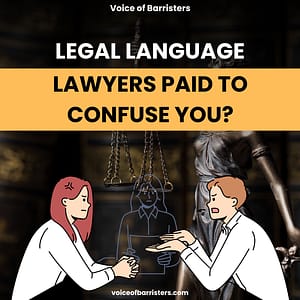| SERIAL NO | LEGAL MAXIM/PHRASE | PRINCIPLE | RELEVANCY OF LAWS |
| 1. | Ab Initio | From the very beginning/ From the first act. | Dilip Kumar Mukherjee V. Commercial Tax Officer (AIR 1965 Cal 498) |
| 2. | Actus Non-Facit Reum Nisi Mens Sit Rea | An act does not make anyone guilty unless there is criminal intent. | Commissioner, Trade Tax U.P., Lucknow V. Project Technologist Pvt., Ltd., (2012) 48 VST 406 (All) |
| 3. | Ad Hoc | For the special purpose. | Addison & Co. Ltd., Madras V. Collector of Central Excise (1997 Mad ELT 532) |
| 4. | Ad Valorem | To be based on the value. | Ganesh Oil Mills Ltd., & Ors., V. State of J&K and Ors., (MANU/ JK 0275 2004) |
| 5. | Audi Alteram Partem | No man shall be condemned unheard. | Hari Niwas Gupta V. The State of Bihar and Others (MANU/BH 0314 2015) |
| 6. | Actus Reus | Guilty act. | Vinod Solanki V. Union of India (2009 (233) ELT 157 SC |
| 7. | De Facto | Existing in reality, when it is a contrary to or not established by law. | Assistant Collector of Central Excise, Calcutta Division V. National Tobacco Co., of India Ltd., (1978 (2) ELT 416) |
| 8. | Delegatus Non-Potest Delegare | A delegate himself cannot delegate and when a delegated power cannot be further delegated. | Valvoline Cummins Limited V. DCIT & Ors., (2008 TIOL 347 DEL HC) |
| 9. | Ejusdem Generis | Of the same class or of the same kind. | Mega Enterprises V. CCE & C (2015 TIOL 1142) |
| 10. | Ex Post Facto | After the fact. | Durga Works V. Assistant Collector of Central Excise ( 1991 KA 0270) |
| 11. | Habeas Corpus | To produce the body. | Union of India V. Paul Manickam., (2003 ELT 6 (162) SC ) |
| 12. | Ignorantia facti excusat – Ignorantia Juris Non-Excusat | Ignorance of facts may be excused but not the ignorance of law. | Ajai Kumar Agnihotri & Anr., V. CCE (2013 DEL HC 1049) |
| 13. | In Absentia | In absence / In one’s absence. | Webel SL.Energy System Limited V. Union of India (2010 CAL 532 ELT) |
| 14. | Locus Standi | The right of a party to appear and be heard before a court of law. | Oswal Chemicals and Fertilizers Ltd., V. Commissioner of C.Ex., Bolpur (2015 ELT 617 SC) |
| 15. | Mandamus | A writ or order that is issued from a court of superior jurisdiction that commands an inferior court / To refrain an act which is required by law as an obligation. | Syndicate v. Union of India. (AIR 1975 SC 460) |
| 16. | Quid Pro Quo | Something in return. | Commissioner of Central Excise, V. Chhata Sugar Co., Ltd (2004 (165) ELT 369 SC) |
| 17. | Res Ipsa Loquitur | The thing speaks for itself. | T.Shankar Prasad V. State of Andhra Pradesh (2004 (164) ELT 143 SC) |
| 18. | Ubi Jus Ibi Remedium | Where there is a right, there is a remedy. | Mithilesh Kumari V. Prem Behari Khare (1989 (40) ELT 257 SC) |
| 19. | Volenti Non-Fit Injuria | To a willing person, no injury is done. | Condon V. Basia (1985 2 ALL ER 453). |
| 20. | Obiter Dictum | Of the same matter / Same subject. | Collector of Central Excise V. Rolling Mills., (1997 ELT 94 8 SCC) |
| 21. | Per Incuriam | By mistake. | Commissioner of Central Excise V. Medico Labs and Anr., ( 2004 ELT 173 GUJ) |
| 22. | Non-Obstante | Notwithstanding (Applies to any statute, on the contrary). | Commissioner of C.Ex., V. Dalmia Cement Ltd., ( 2015 ELT 647 SC) |
| 23. | Sub Silento | Under Silence. | State of Maharashtra V. Subash Arjundas Kataria (2012 ELT 289 SC) |
| 24. | Res Judicata | A thing adjudged. | West Coast Paper Mills V. Superintendent of Central Excise and Ors., (1984 16 ELT 91 KAR) |
| 25. | Ratio Decidendi | The reason or the rationale for the decision by a court. | Ratio Decidendi and Common Cause V. Union of India (1987 4 SCC 25) |








